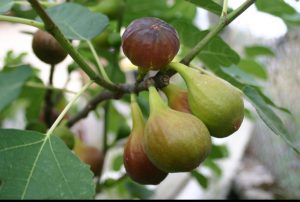

Introduction and Importance
Okra (Abelmoschus esculentus L.) is an important vegetable grown for its green tender fruits which are used as a vegetable in a variety of ways. It is rich in vitamins, calcium, potassium and other minerals matter. It can be fried and cooked with necessary ingredients. The tender fruit can be cut into small pieces, boiled and served with soup. Matured fruit and stems containing crude fibre are used in the paper industry.
Trends, Area, Production and Yield
There has been a progressive increase in area and production of okra in Pakistan. In 2004-05, the area increased to 14.5 thousand hectares, production 109.2 thousand tonnes and yield was tonnes/ha. The data since 1999-00 are as follows.
Table 1. Area, production and yield of okra in Pakistan (1999-00 to 2004-05)
Year | Area (000 ha) | Production (000 tonnes) | Yield (tonnes/ha) |
1999-00 | 13.2 | 100.6 | 7.7 |
2000-01 | 12.9 | 100.5 | 7.8 |
2001-02 | 13.4 | 103.1 | 7.7 |
2002-03 | 12.9 | 99.6 | 7.7 |
2003-04 | 13.8 | 106.7 | 7.7 |
2004-05 | 14.5 | 109.2 | 7.6 |
The average shares of the provinces in the over all area and production of okra based on the data of 2004-05 are given in the table 2.
Table 2. Shares of provinces in area and production of okra (2004-05)
Province | Area | Production | ||
| 000,ha | Percent share | 000, tonnes | Percent Share |
Punjab | 4.8 | 33 | 52.6 | 48 |
Sindh | 4.7 | 32 | 21.6 | 20 |
NWFP | 2.1 | 15 | 18.0 | 16 |
Balochistan | 2.9 | 20 | 17.0 | 16 |
Pakistan | 14.5 | 100 | 109.2 | 100 |
Seed Rate
About 20 kg seed/ha is required for summer season crop whereas 10 kg seed/ha is needed for rainy season crop.
Method of Sowing and Spacing
The seed should be sown on ridges with a distance of 60 cm between rows and 15-30 cm between plants.
Irrigation
There must be enough moisture in the soil to facilitate better germination. The crop should be irrigated at an interval of 5-6 days in summer and whenever required in rainy season.
Manuring and Fertilizing
The land should be incorporated with well rotten farm yard manure @ 25 t/ha one month before bed preparation. Before sowing 25 kg each of phosphorus and potash and 25 kg of nitrogen per hectare should be thoroughly mixed in the soil. Another dose of 25 kg of nitrogen per hectare should be given at the time of flowering and fruit setting.
Harvesting
The tender young pods should be harvested every alternate day. This will promote fruit development and yield. Delay in harvesting will result in poor quality produce due to an increase in crude fibre.
Yield
The yield of okra varies from 8 to 10 t/ha of green fruit during summer and 10-12 t/ha in the rainy season.
Recommended Varieties
Pusa Green
Key Reference : parc.org.pk







